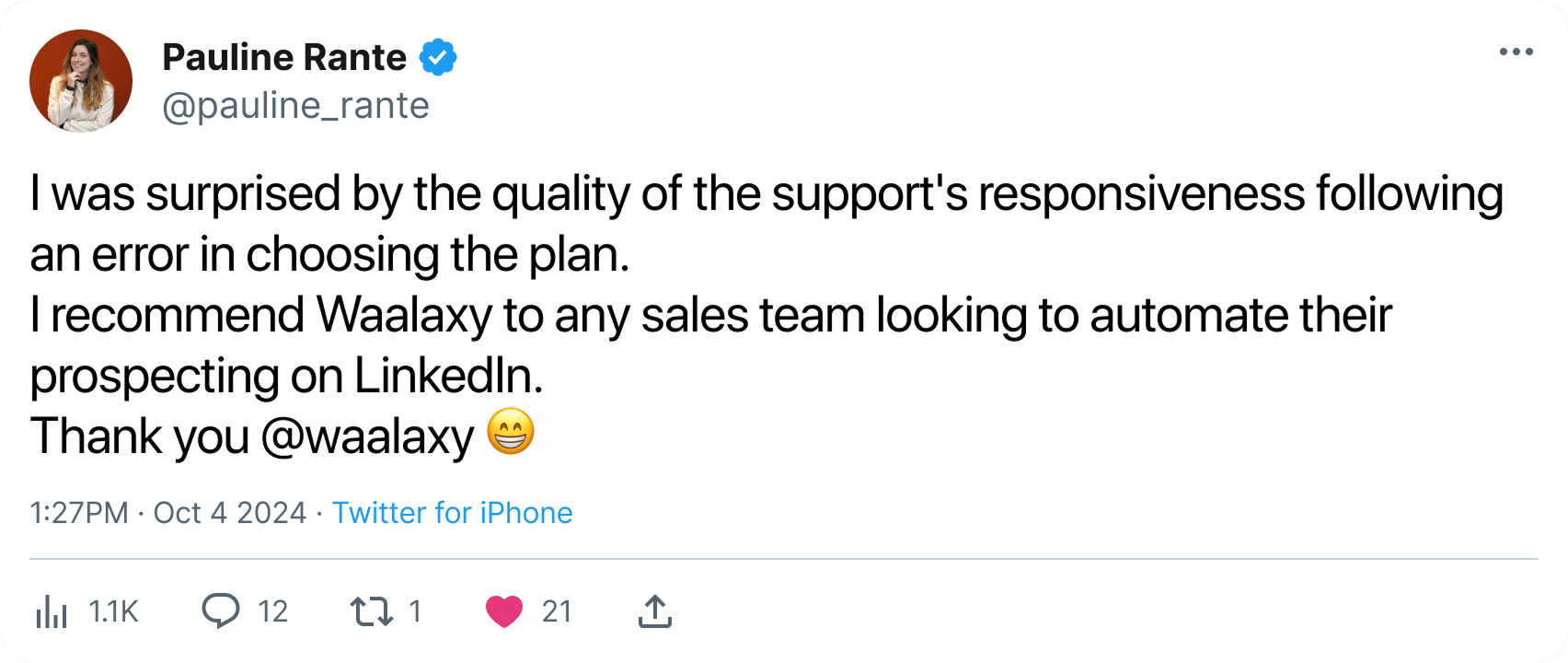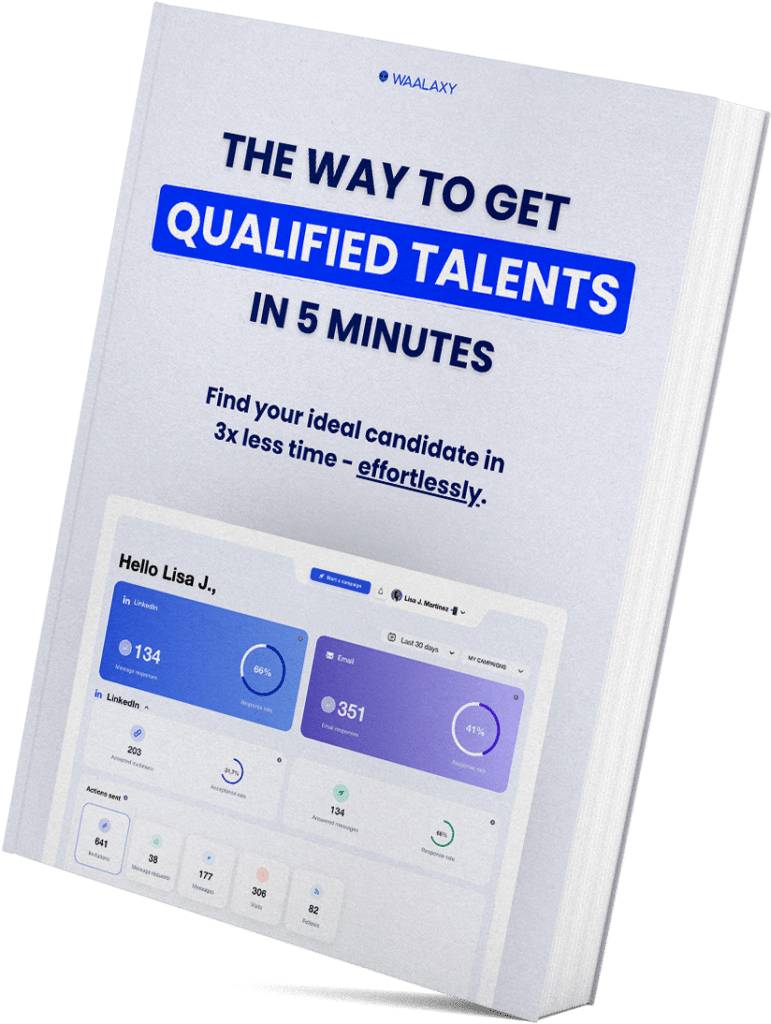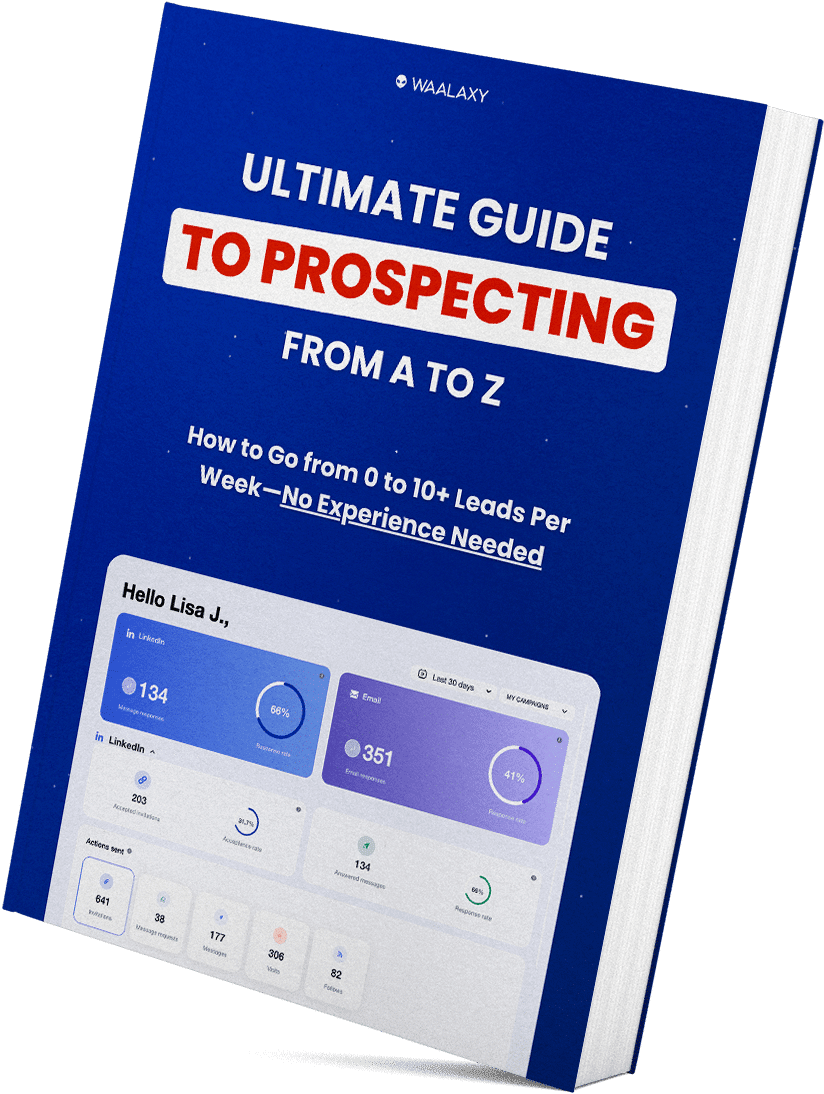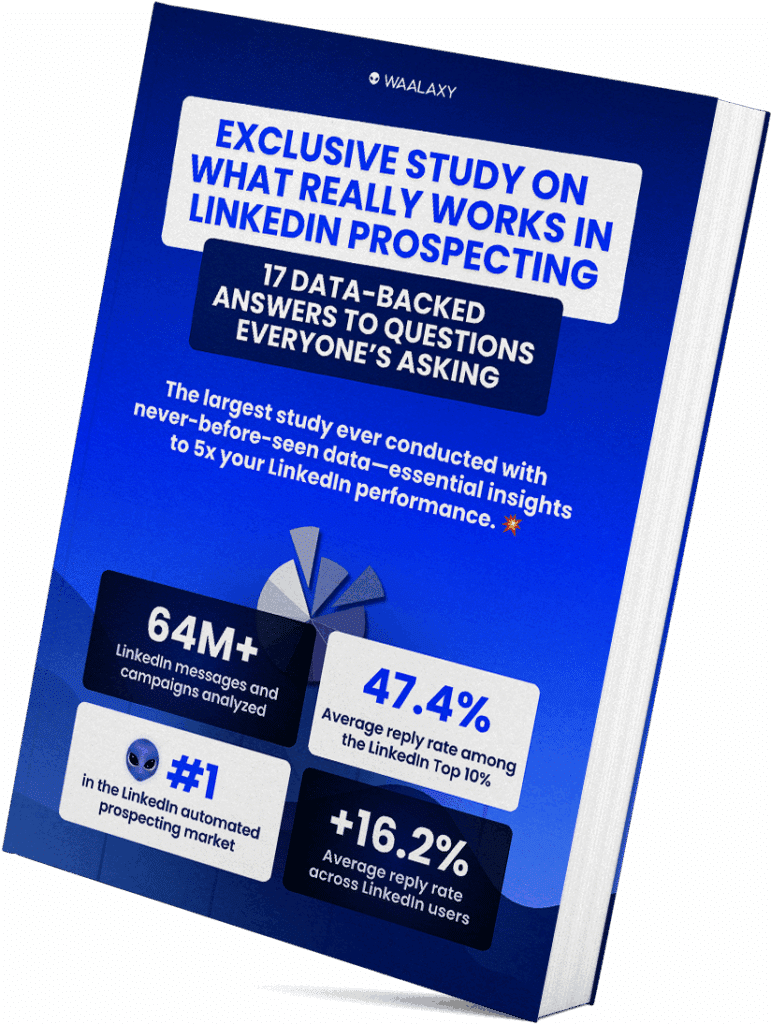Welcome to this special issue devoted to AI. Today we’re going to find out how to integrate AI into your content strategy. And to spice things up a bit, we’ve asked a rising star for his take on the subject. We’ll let you find out 👇!
Through this special issue, you’ll be able to find out:
- ➡️ What AI is and how it works.
- ➡️ The benefits of using AI in your content strategy.
- ➡️ An interview with Félix, Waalaxy copywriter.
What is AI and how does it work?
Artificial intelligence, often abbreviated to AI 🤖, is a field of computer science that aims to create systems capable of performing tasks that normally require human intelligence. Unlike traditional computer programs that are pre-programmed to perform specific actions, AI is characterised by its ability to learn and improve from the data it processes.
We have an entire article dedicated to artificial intelligence that we highly recommend you read. You can find a complete guide and understand it from A to Z.
What are the advantages of integrating AI into your content strategy?
Integrating artificial intelligence (AI) into a content strategy offers a number of significant benefits ✅ for businesses and content creators. These include:
- Deep data analysis: AI can analyse large amounts of data 📊 in a short period of time, providing in-depth insights into user behaviour, market trends and audience preferences. This valuable data allows us to better understand the target audience and tailor content accordingly for greater relevance.
- Personalisation 💓 of content: thanks to data analysis, AI can create personalised content experiences for each user based on their preferences and past behaviour. This improves audience engagement and can lead to higher conversions.
- Improved SEO: AI can be used to identify relevant keywords, generate optimised titles and descriptions. But that’s not all, as you can also improve content structure for better visibility in search engines. This will increase organic traffic to your small website.
- Automated content creation: Well yes, AI can automatically generate content such as articles, text summaries, image captions and much more. This saves time in the content creation process while maintaining satisfactory quality.
Interview with Félix – Copywriter at Waalaxy
You may have come across him on LinkedIn if you follow any of our adventures. So we decided to ask him a few questions about AI and how he can integrate it into his content strategy.
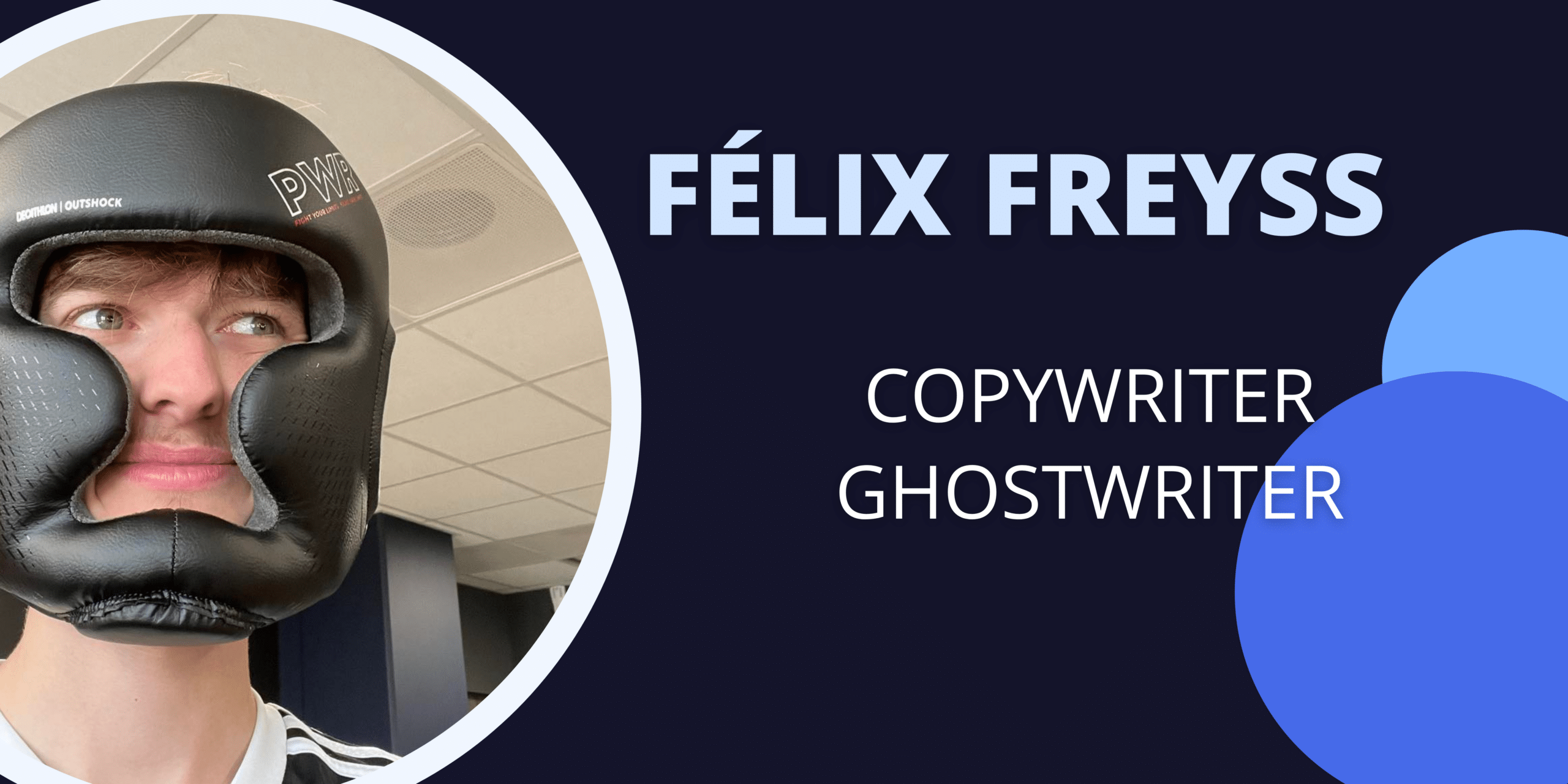
Can you quickly introduce yourself? Tell us what you’re passionate about?
My name is Félix 😺, and I’ve been a copywriter (but also a ghostwriter and content creator) at Waalaxy for nearly 4 months now.
In a few words, copywriting is :
- 👉 Knowing how to grab your reader’s attention.
- 👉 Putting yourself in your reader’s shoes to fully understand their pain.
- 👉 Once the pain has been understood, the copywriter’s job is to write texts. This could be LinkedIn posts, a landing page, a newsletter… All with the aim of converting the reader using different frameworks and playing on their emotions (urgency, need for novelty…).
What I’m a really passionate ghostwriter, especially on LinkedIn. In other words, writing in someone else’s place. To do that, you have to know how to listen to others and develop empathy.
I love this part of my job. Because it combines :
- Human psychology: listening to the person I’m writing for, talking to them, telling me about their life…
- Creating content.
- Sales: The people I write for don’t have the same audience as me. So it’s important for me to understand the needs and pains of their audience in order to create the best content.
Can you explain what AI means to you? In what areas do you use it?
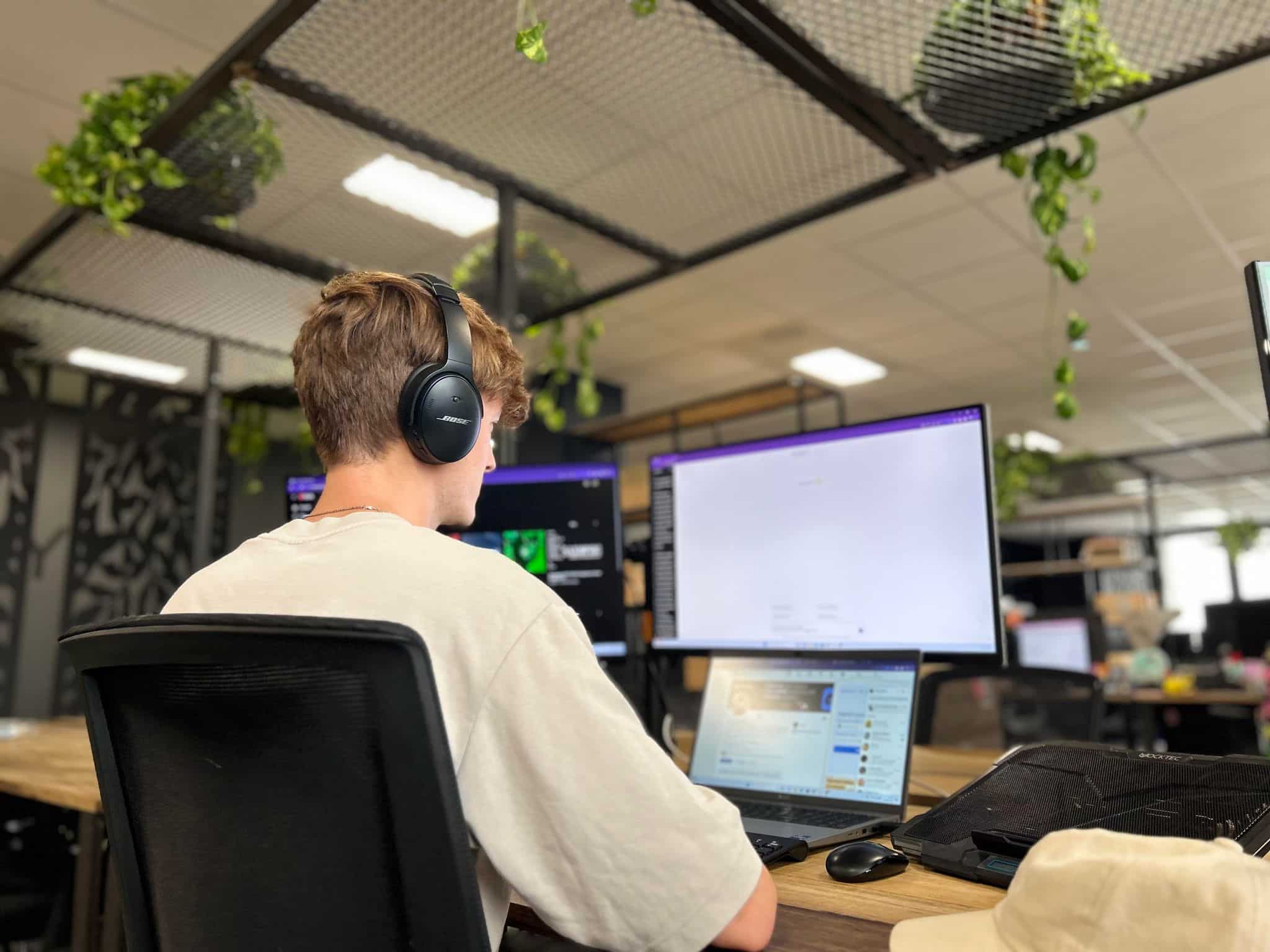
For me,AI is anything but a danger. It’s my co-pilot.
In my job, I use it to come up with ideas, but above all to write the first drafts of my content.
80% of a copywriter’s job is to make sure that the content is easy to read and that it makes sense. AI therefore allows me to generate a V1 and all I have to do is rework it by exploiting my readers’ pain to arouse the emotions 💘 I want them to feel.
How can it be used in a content strategy?
In a content strategy, it can be interesting to use it for:
- Brainstorming 💡.
If you really do have a blank page and don’t have a database of ideas, it can be used to find ideas based on a theme you have in mind. Alternatively, if you do have a database of ideas, use AI to find the sub-parts of your initial idea.
- Scripting 🖊️.
Once you have the main idea and the ‘sub-parts’, it’s easy for an AI to write a script. I simply ask it to take the ideas I submit to it and write a post that targets my 🎯 target. To do this, in my prompt, I share with it the characteristics of the target audience, and the tone to use).
- Correcting spelling mistakes.
- Giving a grade to the post to see if the tagline, body text and opening are good ✅.
I do this in several stages and in several prompts with Chat GPT4. I’ll show you how.
First prompt: Give them the basics
- The hook: It has to be relevant and intriguing, it has to entice the reader to read the rest of the post. The teaser is 80% of a post’s power. So it’s vital that it’s perfect.
- The body of the text: It needs to add value, be easy to read and not be too long.
- The opening of the post: A good opening encourages readers to interact with the content (like, comment, subscribe).
If you’ve got the hang of it, just reply “Yes Félix” between the different posts I send you.
By the way, here’s a short list of copywriters I like on LinkedIn:
- Mathilde Cossé.
- Dan Koe.
- Lara Acosta.
- Mathéo de Olivera.

The idea here is to understand why the posts of the designer you want to take inspiration from are good.
You then send the designer’s posts.
Prompt idea generation

Rewrite V1 manually to create a more personal V2
Ask the AI with the same prompt as part 1 to analyse our post and rate it to find areas for improvement.
(It’s also a good idea to send it to friends to get different feedback from humans and AIs).
Can you give me 4 advantages of using AI in your content strategy?

The 4 benefits I can think of are:
- ⌛ Time saving.
- ⚡ Saving energy.
- 🏢 Gain in structure.
- 💰 Saving money.
Discover how to make money with Chat GPT, here! 👈
What AI tools or technologies do you use most commonly in content writing.
I don’t use many of them, even just one in the end. I’m not going to get wet, I use ChatGPT as a copywriter.
But I know that there are text paraphrasing tools, AIs for transcribing spoken conversations into text.
Do you ever use AI when you have writer’s block to come up with new ideas?
Personally, very little. But I’m weird. I have a very special way of creating my content 😁.

I work in 2 phases:
- The creative phase where I’ll listen 🎧 to podcasts, do sport, read books, watch content.
During these moments, I take note of all the ideas that come into my head.
- The productive phase: All that’s left for me to do is take the notes 🖊️ in my notebook / notion and start writing.
However, if at this point I don’t have any idea of how to turn my content around the big idea. I use AI to help me find examples / sub-parts.
How can AI help identify the most relevant topics and trends for content creation on LinkedIn?
AI can look at discussions, interactions, topics for content creation on LinkedIn. Here’s what comes to mind:
- We can do an upstream search for topics that have buzzed, feed the AI with creators who get a high engagement rate.
- The AI can use natural language processing (NPL) techniques to understand the content of publications. In this way, it can detect keywords, recurring themes and sentiments expressed in messages.

On TikTok, there are AIs that analyse current trends and share data on the best music to use at a given moment.
However, today’s AIs are not all directly linked to the internet. It can therefore be difficult for them to keep abreast of current events and trends.
What aspects need to be taken into account when using AI to target and reach the right audience on LinkedIn?
Integrating AI into your content strategy on LinkedIn can be a powerful asset for reaching your target audience effectively. But there are several aspects to consider in order to maximise the benefits of this approach:
- Data collection: As I see it, AI needs data to understand user behaviour and preferences. You need to make sure you have access to quality data about your audience and give it to the AI. This data could relate to the age of my audience, their field of activity, their professional interests, etc.
- Optimisation: This is a key element that can help you to continually refine your strategy by analysing past performance. In this way, you can gradually improve the relevance of your content to your audience.
- Personalisation: Using AI, you can sometimes forget who you’re writing for. So make sure you create content tailored to your target audience’s interests 🎯.
And above all, remember that content creation lasts over time. I advise you to create, post and wait for your comments. Based on your comments and private 📩 messages, you’ll understand more about your target’s pain.
How can AI help create quality content and generate creative ideas?
AI isn’t good at generating content from scratch, but it is excellent at generating content from matter. The more material you give the AI, the more powerful and relevant the content will be. If you give your AI :
- 👉 The audience you’re talking to.
- 👉 The tone you use.
- 👉 The message you want to get across.
- 👉 The aim of the post (conversion, feeling a special emotion…).
- 👉 The main idea and sub-sections of your post.
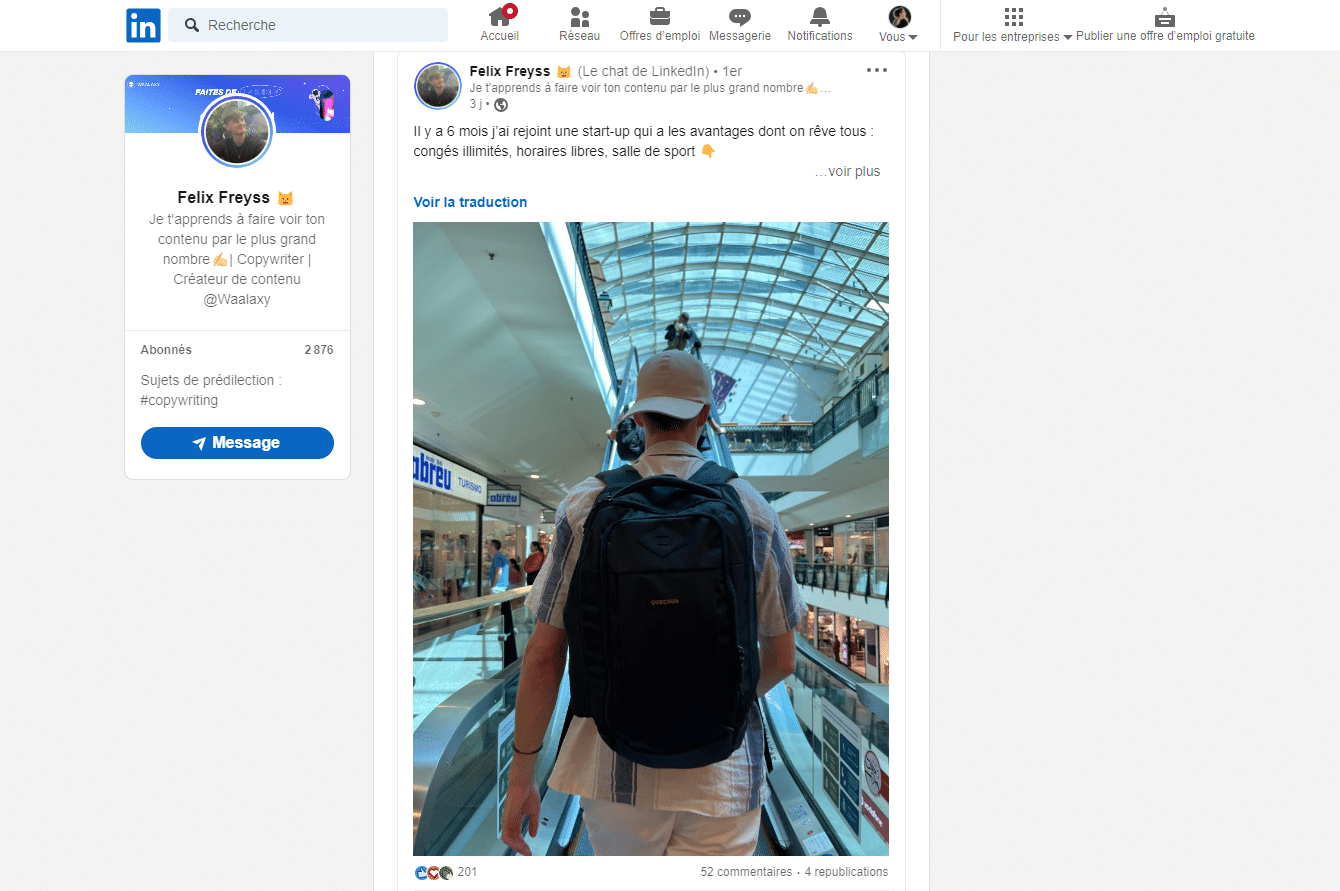
She’ll be able to write high-value content, but it’s vital to share this material with her see more if you can.
What challenges or limitations can you face when using AI in your content strategy?
- It’s not always up to date with what’s going on and what’s trending.
- Then, if the prompts are poorly done, it may misunderstand the pains/needs of the creator’s audience.
- Lack of authenticity/personality in the content.
For you, what are the criteria to consider when choosing an AI tool?
- 🟡 Reviews that can be found on the Internet(YouTube, Twitter…).
- 🟡 Its price.
- 🟡 The time it saves me.
These are the criteria I use, but there may be other needs such as :
- The purpose and use case.
- Ease of use.
- Availability of data.
- The ability to add customisation.
- Scalability
What recommendations or advice do you have for those wishing to integrate AI effectively into their strategy?
For me, it’s essential that AI is incorporated into your content creation, but it shouldn’t be the number 1 element. You, your voice, your authenticity must be at the centre of your creation, and AI will be the icing 🍒 on the cake.
If you don’t learn the mechanics ⚙️ of content creation and writing beforehand, you’ll never be able to stand out from the other creators and you’ll be drowned in the mass of lambdas creators who also use AI.
Of course, to feed your content creation, you can also use AIs to generate images for you. You can use clipdrop, which is free and very high quality.
Conclusion of the article Integrating AI into your content strategy
In the course of this article, we have seen :
- AI and its functions
- The benefits of using AI in your content strategy.
- The interview with Félix, copywriter and ghostwriter at Waalaxy.
We’ll add to this article that this is, of course, how Félix uses it. If you have other ideas for generating content, that’s great. You can also link what you see here to your existing strategy and see how well it’s working.
Article FAQs
Any last words? Anything you’d like to share?
AI is your best friend. It’s not going to replace you, it’s going to push you up, but on one condition: that you learn to use it properly if you give it the right resources.
Don’t expect it to do ALL the work for you. (In this case, yes, she can replace you). Make sure she accompanies you and that she needs you.
Thanks to this interview, you now have all you need to know how to integrate AI into your content strategy.



